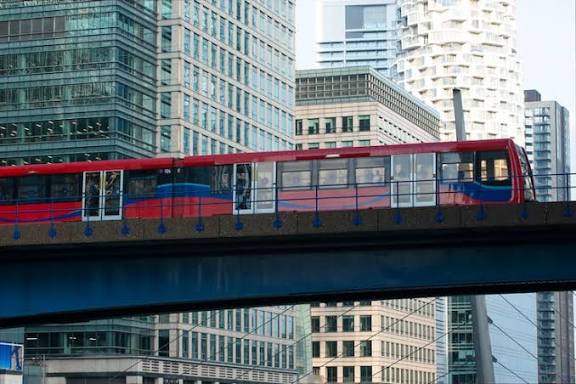Published on
October 29, 2025
In 2025, Southeast Asia is witnessing a significant transformation in its public transportation systems, aiming to enhance tourist mobility, reduce congestion, and promote sustainable travel. Countries across the region are investing in modern infrastructure and services to provide efficient and eco-friendly options for both residents and visitors.Singapore: Electrification and Autonomous Buses
Singapore continues to lead in sustainable urban mobility. The Land Transport Authority (LTA) has awarded a contract for the pilot deployment of autonomous buses, marking a significant step towards integrating driverless technology into the public transport network. This initiative aims to improve efficiency and safety in urban transit. Additionally, Singapore is expanding its electric bus fleet. By the end of 2025, the LTA plans to add 660 new electric buses to its current fleet, including 300 double-deckers and 360 single-deckers. This expansion is part of the country’s commitment to reducing carbon emissions and providing cleaner transportation options for tourists and residents alike. (afma.org.au)
Thailand: Transition to Electric Buses
Thailand is making strides in electrifying its public transportation. The government plans to deploy 1,520 electric buses in Bangkok by 2026, replacing older internal combustion engine buses that are over 30 years old. This move aims to reduce air pollution and improve the quality of life for both locals and tourists. Furthermore, the Bangkok Mass Transit Authority (BMTA) is expanding its feeder electric bus network. In 2025, five new BMA Feeder EV shuttle routes were launched to enhance last-mile connectivity and reduce congestion, particularly in tourist-heavy areas. (marketresearchthailand.com)
Indonesia: High-Speed Rail and Urban Transit Projects
Indonesia has introduced the “Whoosh” high-speed rail line, connecting Jakarta and Bandung. Operational since October 2023, the 142.8 km line operates at speeds up to 350 km/h, significantly reducing travel time between the two cities. As of October 2025, the service has transported over 12 million passengers, offering a fast and efficient travel option for tourists. In Bali, the government is working on the Bali Urban Subway project to address traffic congestion and enhance tourist mobility. The project, estimated at $20 billion, is planned to be completed in four phases by 2031. The first two phases, connecting Denpasar International Airport to Cemagi and Nusa Dua, are expected to be finished by 2028. Each station will feature unique themes reflecting local culture and attractions. (thesun.ie)
Malaysia: Stage Bus Service Transformation
Malaysia is undergoing a transformation in its bus services through the Stage Bus Service Transformation (SBST) program, rebranded as BAS.MY. As of October 2025, the service has been operating in cities including Kangar, Kota Setar, Ipoh, Seremban, Melaka, Johor Bahru, Kuala Terengganu, Kota Bharu, and Kuching, with plans to expand to Kota Kinabalu. The program introduces modern buses equipped with cashless payment systems, real-time GPS tracking, and facilities for senior citizens and people with disabilities. This initiative aims to provide efficient and reliable public transport options for both locals and tourists. (truckandbusnews.net)
India: Kochi Water Metro
India’s Kochi Water Metro, inaugurated in April 2023, has become a vital part of the city’s public transportation network. As of September 2025, the system has served over 5 million passengers, connecting Kochi’s 10 island communities with the mainland through a fleet of electric hybrid boats operating along 38 terminals and 16 routes spanning 76 km. The Water Metro is integrated with the Kochi Metro and serves as a feeder service to the suburbs along the rivers where transport accessibility is limited. The system is expected to become fully operational by 2035, with a daily ridership of 150,000 passengers. The project aims to reduce annual carbon emissions by 44,000 tonnes once fully operational. (en.wikipedia.org)
Laos: Vientiane’s Bus Rapid Transit System
Laos is introducing its first Bus Rapid Transit (BRT) system in the capital city of Vientiane. The trial operations began in August 2025, offering three months of free service to the public. The BRT features electric buses operating on dedicated lanes, separate from regular road traffic, aiming to replace the city’s old, noisy, and polluting bus system. The Vientiane Urban Sustainable Transport Project, authorized in 2016 at a cost of $99.7 million, is financed by the Asian Development Bank, European Investment Bank, OPEC Fund for International Development, European Union-Asia Investment Facility, Global Environmental Facility, the Lao government, and the private sector. (vientianetimes.org.la)
Conclusion
Southeast Asia’s public transportation systems are undergoing significant transformations in 2025 to enhance tourist mobility, reduce congestion, and promote sustainable travel. From electrifying bus fleets in Singapore and Thailand to introducing high-speed rail in Indonesia and innovative water metro services in India, the region is embracing modern infrastructure to meet the needs of both residents and visitors. These initiatives not only improve the travel experience but also contribute to environmental sustainability and economic growth.
News Articles:


